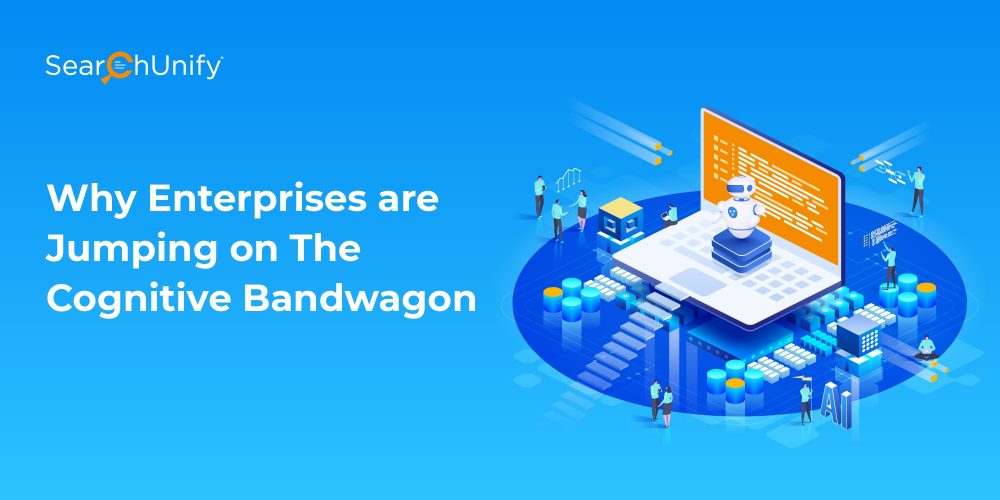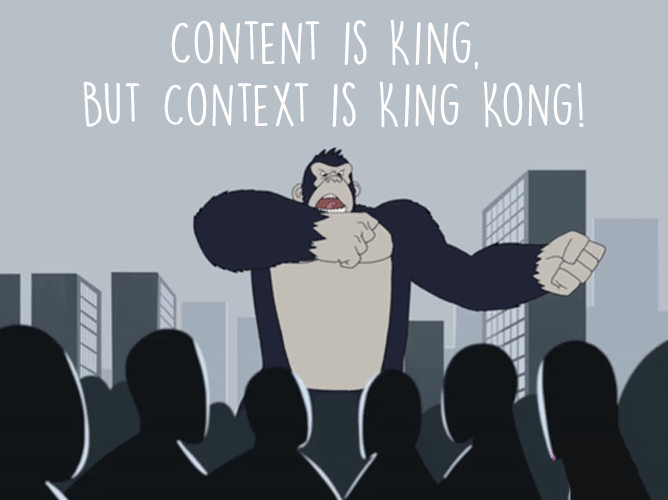

Recently, a lot of enterprises have started looking for more capable search engines to enhance their search capabilities. At the same time, AI-powered enterprise search, also known as cognitive search, is making a lot of ripples.
A large part of this sudden surge can be credited to the core technologies it hides under the hood. It actively uses artificial intelligence (AI), machine learning, and natural language processing (NLP) to deliver stellar search experience.
But what are the reasons that lead enterprises to begin looking for a better search solution? Let’s find out!
The Need for Cognitive
So, why do enterprises feel the need to upgrade to a more powerful search solution. Well, the answer is simple – they need to stay a step ahead of user expectations. To understand the gravity of the situation, consider the following scenario:
As an organization, namely X, scales, its portfolio and knowledge sources grow tremendously. This means maintaining an effective search solution becomes pivotal to swiftly answer user queries. An apt search solution that drives relevant responses will result in enhanced employee productivity and better customer experience.
This is how it works: NLP comprehends the search intent, then machine learning scans recent activity & personalizes results accordingly, and finally AI analyzes the query and pits it against results that worked in the past. Result? Valuable information – Delivered.
No matter whether the data is on a website, online community, in a CRM or any other source, it can be easily indexed and retrieved. Powerful search algorithms spearheaded by artificial intelligence allows user with permission to easily locate and access information from the firm’s entire digital footprint. That ought to make things easier, right?
This is just the cognitive way of doing things which makes it valuable for enterprises.
Evolving Search Habits & Content Types
Look back a decade or so and you will realize that most enterprise content and information existed in a handful of simple formats. Fast forward to 2018 and that is no longer the case. Now, enterprises have been swarmed with newer formats containing data of different types.
Most of these new entries qualify as unstructured data, meaning they cannot be identified by CRM or most other enterprise systems. As a result, enterprises might end up looking for information that they do not know they already have.
Furthermore, the way people search has changed by leaps and bounds. Thanks to Google, bygone is the era of actively searching for information. Now, users want search engines to anticipate what users might be looking for. By using AI and machine learning, cognitive search proactively provides smart recommendations and makes the going easier.
Context is King

People haven’t just turned lazy, they have also become predominantly picky. Not only are they keyboard slobs but they also want an intelligent search engine. It means search has to go beyond keywords and understand the user’s intent behind search.
With cognitive search, you not only live up to user expectations but surpass them. To understand the context behind a search query, the engine must be able to detect the following four elements: –
- Who: Which user is looking for information? What has she/he previously looked for and what she/he might search for in the near future?
- What: The nature of required information is imperative. A user may be looking for information from databases, or in the form of audio, video, or image files.
- When: The time of search or information’s date or time of creation also influences the accuracy and relevance of results.
- Where: Location is the last piece of the puzzle. Data on user and information’s location helps in making the future search experience more fluid.
The Bottom Line
Every enterprise has an awful lot of data that can be used to provide deep insights. Search delivers that data, but without an AI engine to process it and deliver insights & context, it won’t cut it. You need something that constantly analyzes activity and habits over a period of time.
No matter what business you are into, you should not have to search for information. Instead, you should connect all the data sources and keep the relevant information at your fingertips. Then, you can make business decisions on the basis of this data.
Want to dive a little deeper into the cognitive world? Then request a live demo now!